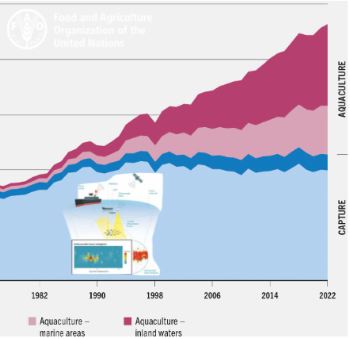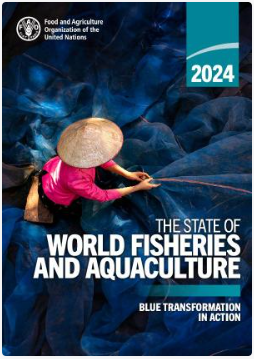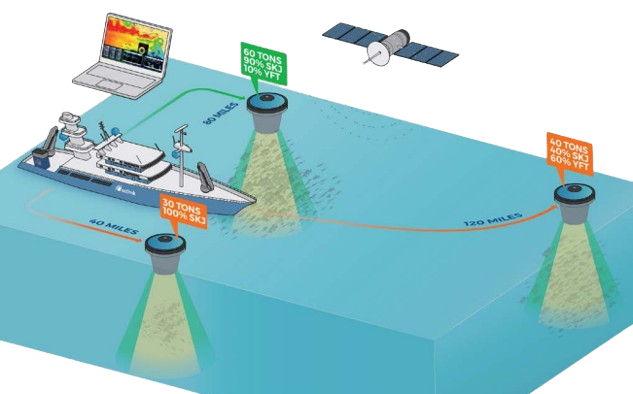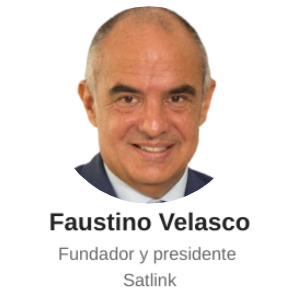|

'Buoy echosounder information has the potential to contribute valuable fisheries independent data and reshape how tuna stocks are monitored', Satlink
Fishing Industry Explores Innovative Waters to Balance Business and Sustainability
 EUROPEAN UNION EUROPEAN UNION
Monday, September 09, 2024, 00:10 (GMT + 9)
Technology has become a vital ally for a sector that hopes for a policy shift within the European Union to regain its competitive edge, reports the Spanish newspaper ABC Economía.
 In its necessary pursuit of sustainability, balancing economic profitability with environmental protection, the European fishing industry has found support in new technologies aimed at optimizing operations while contributing to biodiversity conservation. Smart buoys, advanced decision-making software, and oceanography tools are just a few examples of how the industry is diving deeper into innovation to strengthen itself and promote environmentally responsible production. The Food and Agriculture Organization (FAO), in its 2024 edition of the "State of World Fisheries and Aquaculture" report, recently highlighted how the past decade has witnessed numerous technological solutions in sustainable fishing, enhancing both efficiency and the quality of catches. In its necessary pursuit of sustainability, balancing economic profitability with environmental protection, the European fishing industry has found support in new technologies aimed at optimizing operations while contributing to biodiversity conservation. Smart buoys, advanced decision-making software, and oceanography tools are just a few examples of how the industry is diving deeper into innovation to strengthen itself and promote environmentally responsible production. The Food and Agriculture Organization (FAO), in its 2024 edition of the "State of World Fisheries and Aquaculture" report, recently highlighted how the past decade has witnessed numerous technological solutions in sustainable fishing, enhancing both efficiency and the quality of catches.
The State of World Fisheries and Aquaculture 2024 (FAO) ==>
However, the industry's commitment to cutting-edge developments must be accompanied, say various trade associations, by governmental measures such as reducing administrative burdens and ensuring that imported seafood meets the same standards required of EU fishers. Currently, lower-priced products from regions with more lenient regulations are entering the European market. It is worth noting that over 70% of the seafood consumed in the European Union is imported, posing a threat to the continent's food sovereignty.

Satlink’s Selective DSF has been repeatedly recognized for its crucial contribution to shaping the future of fisheries. Photo: courtesy Satlink
European Commission President Ursula von der Leyen recently announced the appointment of a dedicated Fisheries Commissioner for the upcoming term, a decision the industry has long advocated for. The sector hopes that the newly appointed commissioner will defend the interests of EU fleets and prevent unfair competition from non-EU countries.
 While awaiting these changes, the industry relies on technology to ensure its economic viability and the long-term preservation of resources. "Europe and Spain are pioneers in this field," emphasizes Faustino Velasco, president of Satlink, a leading Spanish company in technological solutions for the maritime and fishing sectors, with a clear focus on sustainable management. Their first innovation, developed in collaboration with the Spanish General Secretariat for Fisheries in 1999, was a "blue box" that initially used satellite technology and later cellular technology to track the locations of fishing vessels. The next advancement was an electronic fishing logbook to record data according to EU standards. Satlink also offers electronic monitoring systems, such as onboard cameras and sensors, tailored to different types of vessels. "The human observer stays ashore and can monitor up to ten boats simultaneously," Faustino notes, highlighting one of the system's advantages, along with the increased transparency it provides. While awaiting these changes, the industry relies on technology to ensure its economic viability and the long-term preservation of resources. "Europe and Spain are pioneers in this field," emphasizes Faustino Velasco, president of Satlink, a leading Spanish company in technological solutions for the maritime and fishing sectors, with a clear focus on sustainable management. Their first innovation, developed in collaboration with the Spanish General Secretariat for Fisheries in 1999, was a "blue box" that initially used satellite technology and later cellular technology to track the locations of fishing vessels. The next advancement was an electronic fishing logbook to record data according to EU standards. Satlink also offers electronic monitoring systems, such as onboard cameras and sensors, tailored to different types of vessels. "The human observer stays ashore and can monitor up to ten boats simultaneously," Faustino notes, highlighting one of the system's advantages, along with the increased transparency it provides.
editorial@seafood.media
www.seafood.media
|



